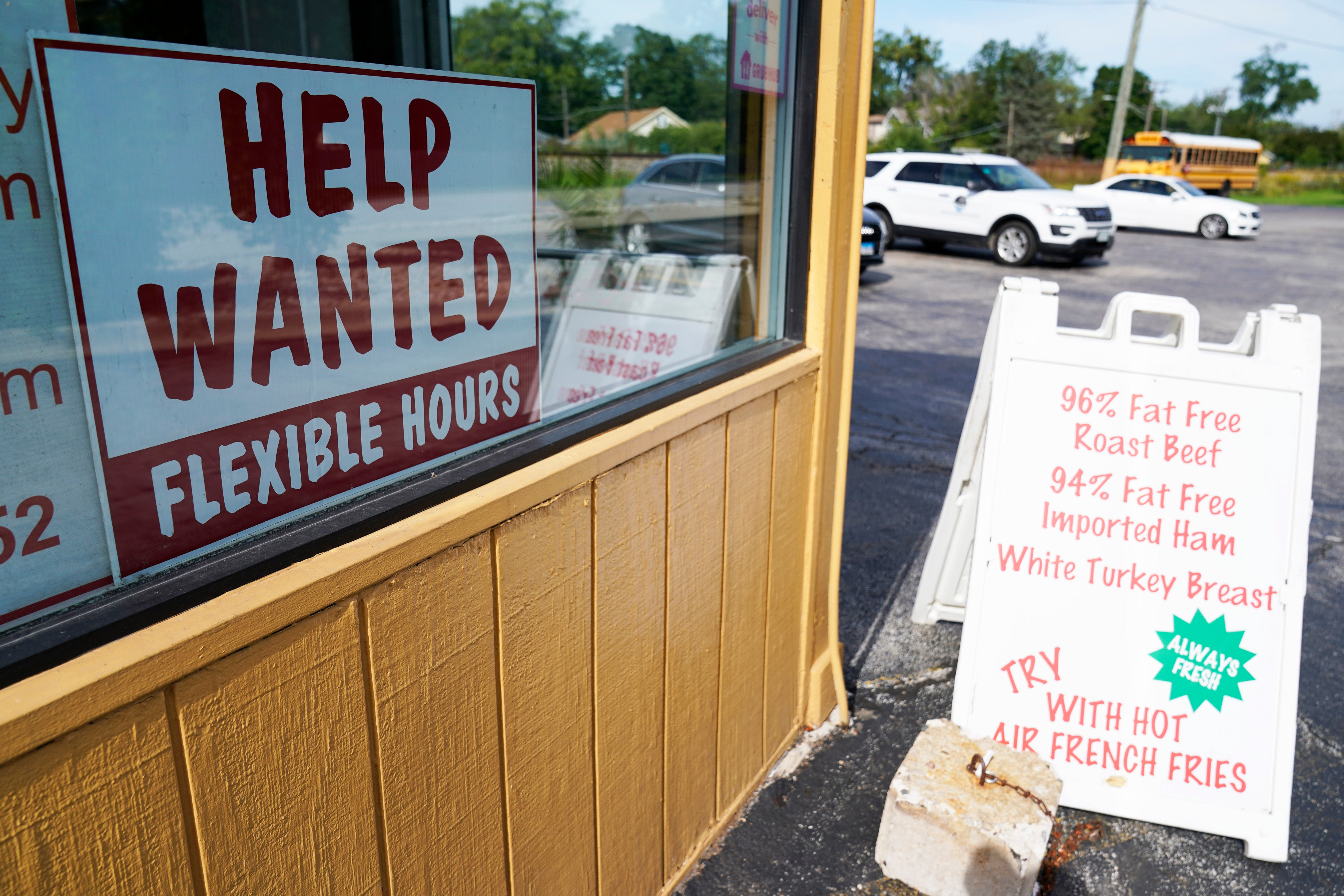What recession? Professional forecasters raise expectations for US economy in 2024
This year looks to be a much better one for the U.S. economy than business economists were forecasting just a few months ago

Your support helps us to tell the story
From reproductive rights to climate change to Big Tech, The Independent is on the ground when the story is developing. Whether it's investigating the financials of Elon Musk's pro-Trump PAC or producing our latest documentary, 'The A Word', which shines a light on the American women fighting for reproductive rights, we know how important it is to parse out the facts from the messaging.
At such a critical moment in US history, we need reporters on the ground. Your donation allows us to keep sending journalists to speak to both sides of the story.
The Independent is trusted by Americans across the entire political spectrum. And unlike many other quality news outlets, we choose not to lock Americans out of our reporting and analysis with paywalls. We believe quality journalism should be available to everyone, paid for by those who can afford it.
Your support makes all the difference.This year looks to be a much better one for the U.S. economy than business economists were forecasting just a few months ago, according to a survey released Monday.
The economy looks set to grow 2.2% this year after adjusting for inflation, according to the National Association for Business Economics. That’s up from the 1.3% that economists from universities, businesses and investment firms predicted in the association's prior survey, which was conducted in November.
It’s the latest signal of strength for an economy that’s blasted through predictions of a recession. High interest rates meant to get inflation under control were supposed to drag down the economy, the thinking went. High rates put the brakes on the economy, such as by making mortgages and credit card bills more expensive, in hopes of starving inflation of its fuel.
But even with rates very high, the job market and U.S. household spending have remained remarkably resilient. That in turn has raised expectations going forward. Ellen Zentner, chief U.S. economist at Morgan Stanley and president of the NABE, said a wide range of factors are behind the 2024 upgrade, including spending by both the government and households.
Economists also more than doubled their estimates for the number of jobs gained across the economy this year, though it would still likely be down from the previous one.
Offering another boost is the fact that inflation has been cooling since its peak two summers ago.
While prices are higher than customers would like, they're not increasing as quickly as they were before. Inflation has slowed enough that most of the surveyed forecasters expect interest rate cuts to begin by mid-June.
The Federal Reserve, which is in charge of setting short-term rates, has said it will likely cut them several times this year. That would relax the pressure on the economy, while goosing prices for stocks and other investments.
Of course, rate changes take a notoriously long time to snake through the economy and take full effect. That means past hikes, which began two years ago, could still ultimately tip the economy into a recession.
In its survey, NABE said 41% of respondents cited high rates as the most significant risk to the economy. That was more than double any other response, including fears of a possible credit crunch or a broadening of the wars in Ukraine or the Middle East.